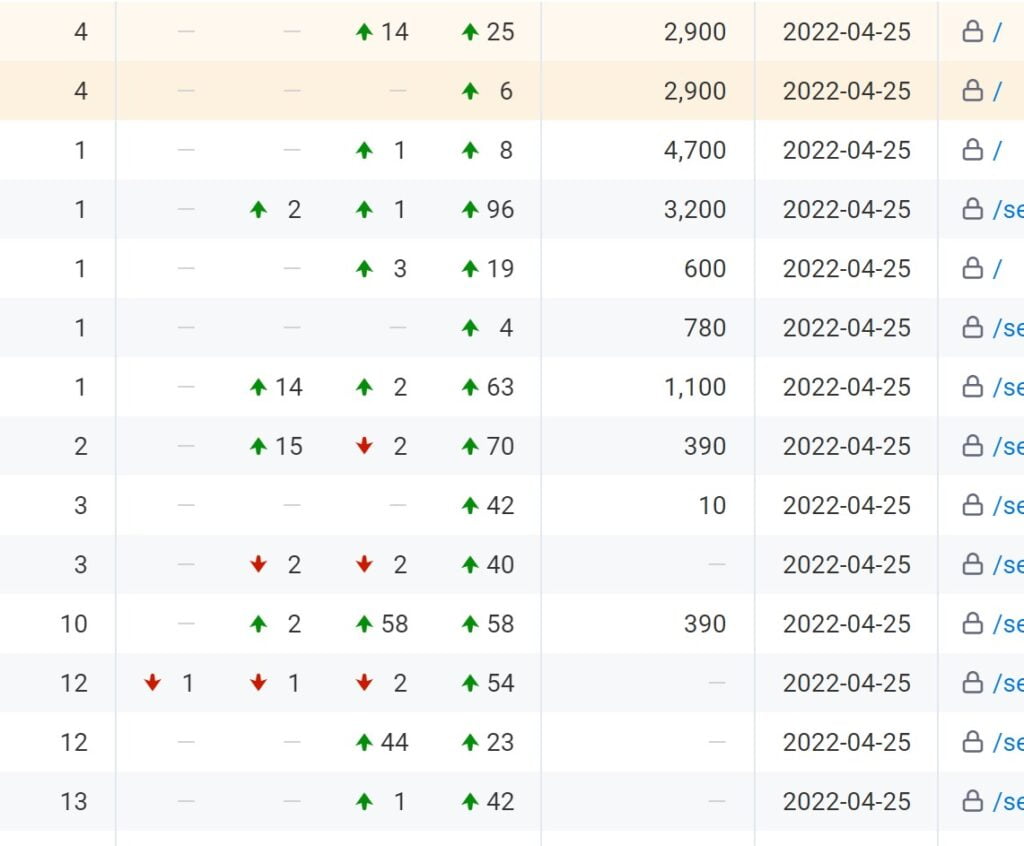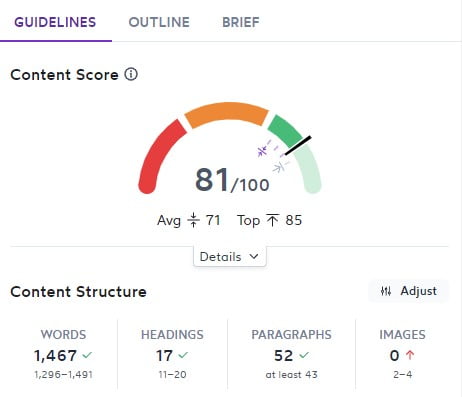Keyword research—the practice of identifying queries your site will benefit from ranking highly for—is the foundation of any solid SEO strategy. The goal is to bring the broad topics that are most relevant to your website into focus and use them to generate a list of authentic words and phrases that your target customers are actually typing into search engines. In a sense, effective keyword research involves a bit of reverse engineering—teasing out queries from the topics in your content instead of finding content based on queries, as a standard Google user would do.
There are many platforms that can help with keyword research. But whether you opt to enlist the help of a specialized keyword research tool, use Google Keyword Planner, or simply use the Google search bar as your main research tool, at a certain point, you're eventually going to be staring at a long list of keywords you'd like to rank highly for. This is a good thing in and of itself—your first step toward improving your SEO.
But what do you do next? How do you take these keywords and put them to work for you?
At SerpFocus, I often field this question.
So, in this article, let's dig a little deeper into what comes after conducting keyword research. Grab the list of potential keywords you'd like your site to rank highly for, and hold onto your hat. We're going to zoom through the basics of keyword mapping, rank tracking, content optimization, and keyword performance evaluation.
Organize Your Relevant Keywords Into Clusters Using a Keyword Map

A long keyword list is a great starting point, but now it's time to figure out how you'll integrate them onto your web pages in smart and savvy ways that will maximize your SEO.
It can be helpful to do some critical thinking about the big concepts your website is built around before beginning to match up pages with keywords. Grouping keywords based on your website's important themes or topics will keep your SEO strategy relevant, organized, and successful.
You'll want to match up a particular keyword (or cluster of keywords) with specific pages, building logical connections between pre-existing content and the words or phrases on your research list. No doubt, this will involve re-writing content as well as building out new pages around targeted keywords and phrases. But your site's pre-existing architecture can still function as your basic framework (assuming you like it and aren't looking to completely restructure).
As its name implies, a keyword map is a strategic tool that helps you to see your website from a bird's eye view. Often built around spreadsheets, it mimics your website's structure and allows you to assign keywords to specific pages (known as keyword mapping).
Keyword mapping is essential for a few reasons. First of all, by giving you a snapshot of which pages need to be optimized for which keywords, it provides you with a clear path to follow. Secondly, it allows you to easily identify pages or content areas that don't connect with any keywords. (Also, the opposite—keywords that need new content to be built around them.) Lastly, keyword mapping helps you notice multiple pages that are all focused on the same keyword (known as keyword cannibalization). More on this later.
Put Your Keywords Into a Rank Tracker

Once you've built a keyword map, you should have a fairly solid sense of the relationship between your content and your target keywords—where you'll need to optimize existing content and where you'll need to create content from scratch.
But wait, where should you begin? Does it matter? Actually, yes, it does. Approaching content development strategically can have a major impact on your SEO's efficacy and speed.
Start by putting your keywords into a rank tracker. At SerpFocus, I use Keyword.com for rank-tracking purposes. It’s a straightforward keyword tracker that gives me all the data I need at my fingertips. Read my full review of Keyword.com here.
Entering your keywords into a rank tracker will tell you how your site is ranking for specific keywords and, just as importantly, how your competitors are ranking for them as well. Based on this information, you can zero in on strategies that will fill in the gaps between you and your competition. Ultimately, the best way to boost your keyword rankings is to focus your energy on keyword suggestions that you have a real shot at capturing.
But how do you determine that? Let's take a look:
Determine Priorities by Going After Lowest-Hanging Fruit First
Search volume (the number of people searching for a specific word or phrase on a particular search engine) is one factor in determining whether or not a keyword is worth focusing on. High search volume indicates a keyword that generates a lot of organic traffic. But (and this is a big but), you have to consider what portion of that traffic your website will be likely to actually receive. High search volume keywords are also usually highly competitive to rank for.
The right keywords (what I call low-hanging keyword fruit) will be keywords and phrases that have enough search volume to be worthwhile for your business but not so much that they're way out of reach.
Other factors that contribute to determining how difficult a keyword will be to rank highly include the quality of your competitors' sites (including content, backlinks, and overall domain authority) plus the search intent behind a specific keyword or keyword phrase.
Semrush has bottled all of these factors into one metric that it refers to as Keyword Difficulty. I am personally a big fan of this Semrush feature and find it a really useful way to prioritize and successfully go after the best keywords in a particular niche. Read my complete Semrush review here.
Determine Content Needs
Alright, you've done your keyword research, built a keyword map, and determined which keywords will be your best starting point for smart SEO.
Now it's time to take a close look at your content needs. Based on what's working for your competitors, you can figure out exactly what type of content will perform best for each of your target keywords.
This is called SERP analysis, and there are many tools and platforms available to assist you in this area. For some ideas, check out my review of The 12 Best SERP Trackers.
Ultimately, you'll want to know what sort of content to create. Should it be a blog post, a list article, or an in-depth case study? How long should your content be, and what other components should it include (e.g., images, video, PDF downloads, etc.)? What related topics have ranked successfully for your competitors, and how can you build on those?
Once you've determined your content guidelines, it's time to create some quality content.
Create Optimized Content

Search engines love optimized content. Creating optimized content obviously involves original, high-quality writing. But there's more to it than just that. Keywords need to be used throughout your web pages—including in the titles, meta tags, headings, and body text. They should also be integrated into your URLs (if possible) and used in image Alt tags. Read my guide on creating optimized content for SEO here.
Content optimization software solutions such as Surfer SEO take hundreds of ranking factors into consideration and monitor the technical aspects of your web pages so that you’re free to focus on generating quality content. Read my in-depth review of Surfer SEO.
Routinely Evaluate How Your Keywords Are Performing
In the end, your search engine rankings will only continue to increase if you keep a close eye on how they’re performing. Like everything in SEO, keyword rankings are an ever-changing landscape that need to be continually monitored, tweaked, and re-evaluated.
In my experience, checking your keyword rankings weekly is critical to maintaining the progress you've worked so hard to achieve. Google Search Console as well as other tools can help with this. Without proper attention to detail, issues like keyword cannibalization can occur (when you have too many identical or similar keywords spread throughout the content on your website). Ask the tough questions and put in the hard work, and you'll be rewarded with improved SEO and higher search engine results.
Wrapping It Up
In this article, we've covered some of the next steps you can take once you've got a keyword list in-hand. Keyword mapping, rank tracking, content optimization, and keyword performance evaluation are all crucial factors in converting your keyword research findings into effective SEO for your business. Along the way, there are many platforms and solutions that can support you in getting to where you want to go!
SerpFocus Consulting
If you've learned some basics from this article but are looking for more in-depth SEO solutions for your business, SerpFocus can provide one-on-one SEO consulting.
With years of experience in the SEO industry, I'll help you pinpoint areas, strategies, and techniques that will both build your SEO knowledge and boost your rankings.



Leave a Reply
You must be logged in to post a comment.